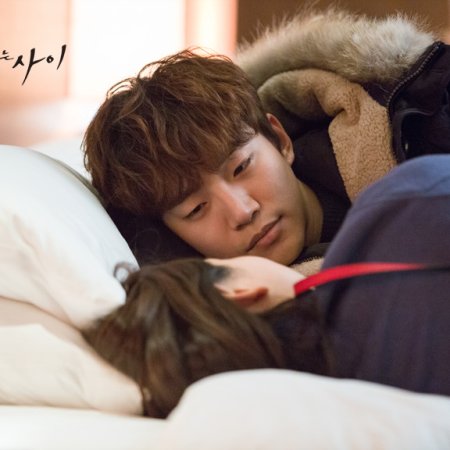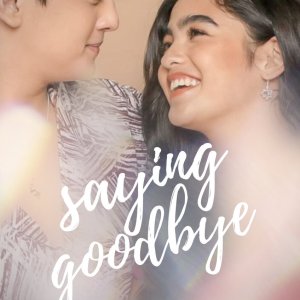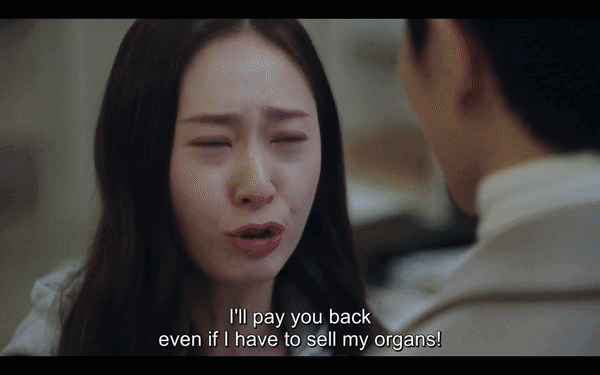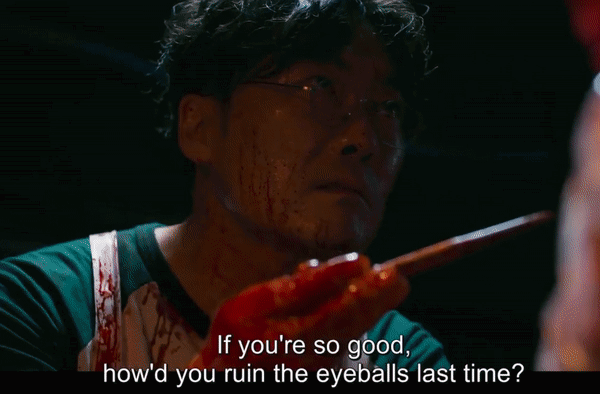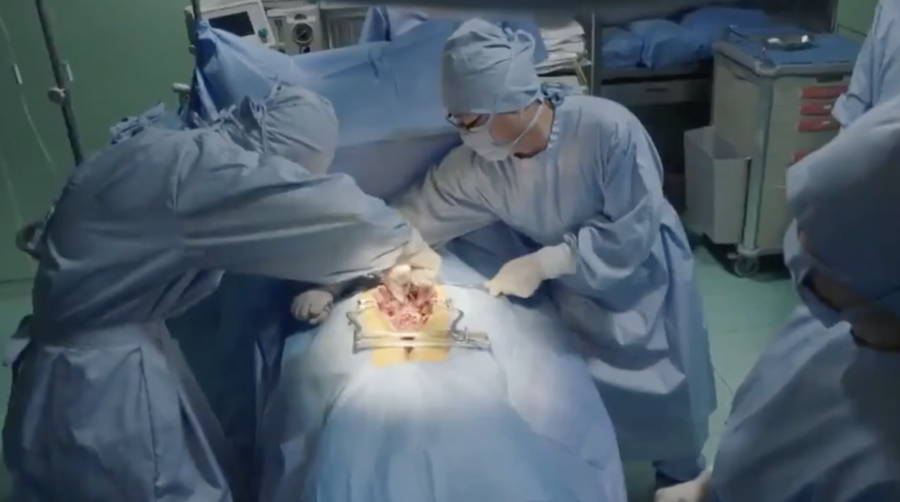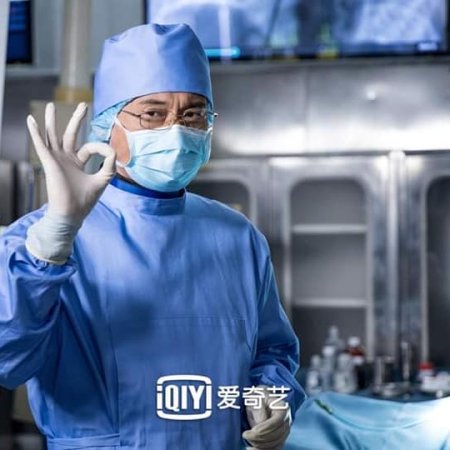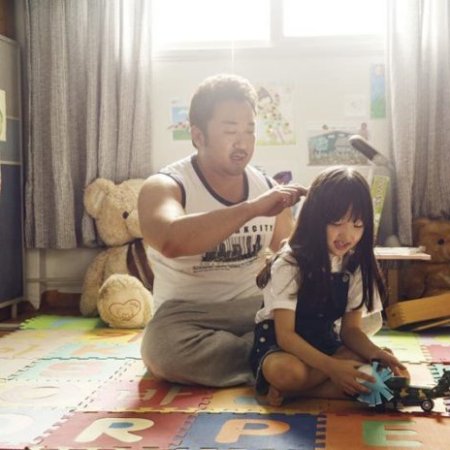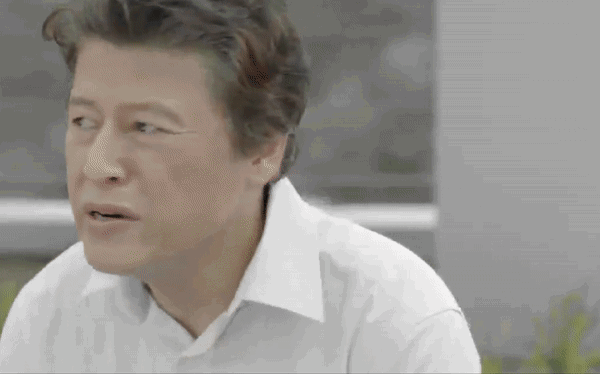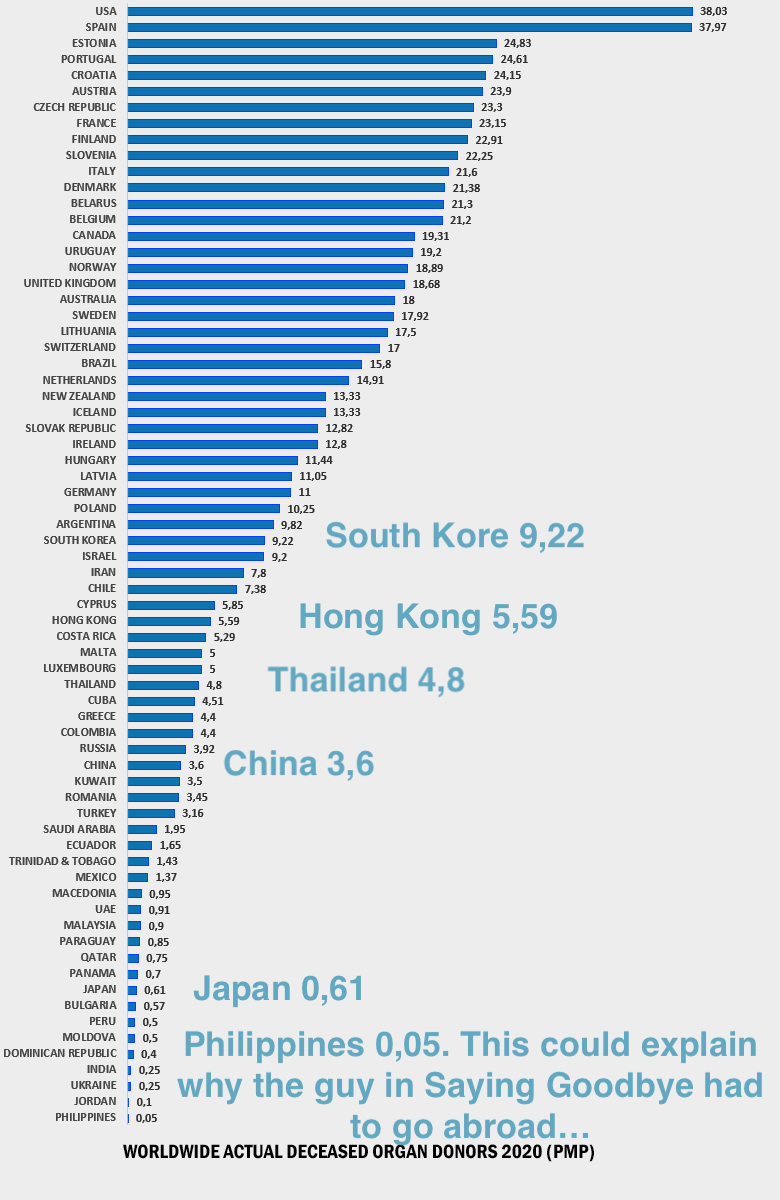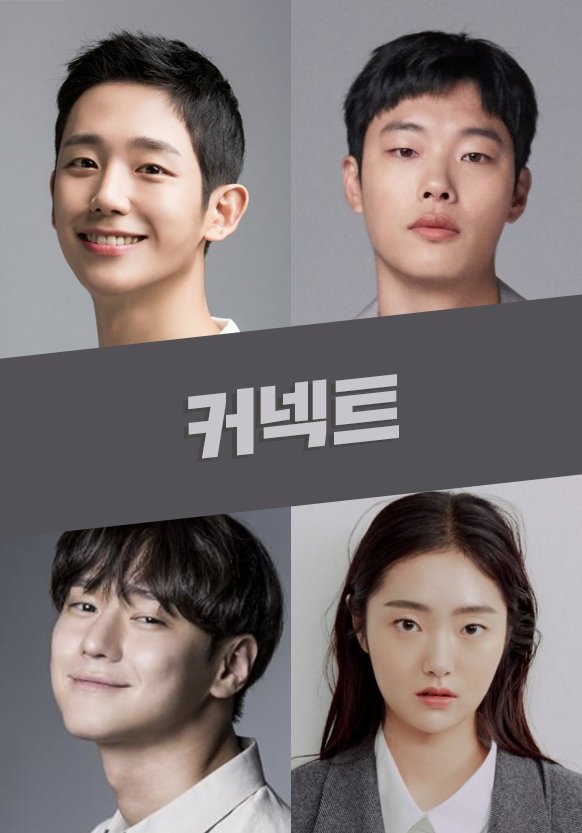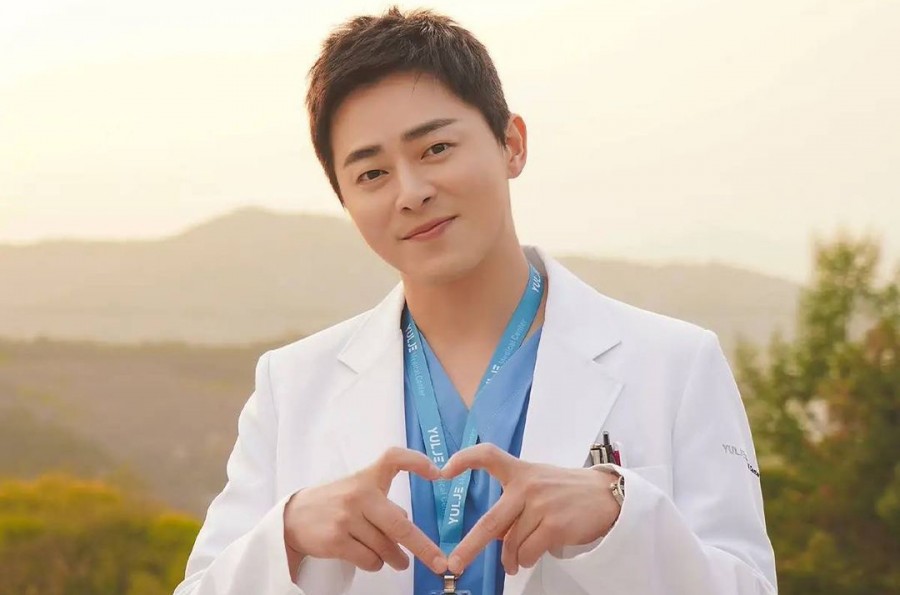 Post-Heart Transplant and life expectancy among transplantees: Shiro vs Dramaland. Post-Heart Transplant and life expectancy among transplantees: Shiro vs Dramaland.
While some dramas seem to teach you otherwise, realistically only those who receive stem cells can get off the hook, at some point of their life, when it comes to the lifelong contract after receiving an organ. A contract that entails taking immunosuppressants, and such lovely checkups like biopsies, x-rays, blood work, stress tests… and whatever doctors find relevant to check up on will be done regularly from the day you get the organ till the day you die. At least here, but of course this may differ from person to person, hospital to hospital, country to country, wallet to wallet... It's a contract not really enforced by law but by your own body... scary but true. Waking upThis is of course highly individual but waking up from receiving a heart may sound like all fun and games but I am not going to lie I wanted to die... As I woke up after I received my heart, I was filled with tubes, wires (external pacemaker to the heart for the first month), and an obscene amount of substances there to make sure the heart was accepted. I could feel the rays of sunlight pierce thru my body like nails… as the first week or so was so much pain, I felt so nauseous and was sensitive to everything that I personally wanted to give it back. Now that would have made some great drama, why not show that? Should we name it Returning a Heart... or A Thousand Needle Light... In the hospital wardAbout 9 days later some of the side effects subsided a bit, and the greenish goo that came out of my bowel had turned brown… Still nothing stable but at least the green was gone. I could actually eat food without feeling like it was going to kill me, and managed to take a glimpse at my phone. I found myself all energised (mostly high because of the meds, and lack of sleep). So I could run in the corridors, dance with my drip stand… Heck I even danced with a drip stand while receiving a blood transfusion a few weeks later. The recovery process (perfectly normal) goes in waves; a few litres of fluids in one's lungs and a low blood cell count are apparently just some of the common complications that are accompanied to the transplant. My neighbour in the ward had fluids around his heart, so he had it worse. But still, dancing with a bag of blood while having lots and lots of fluids trapped in 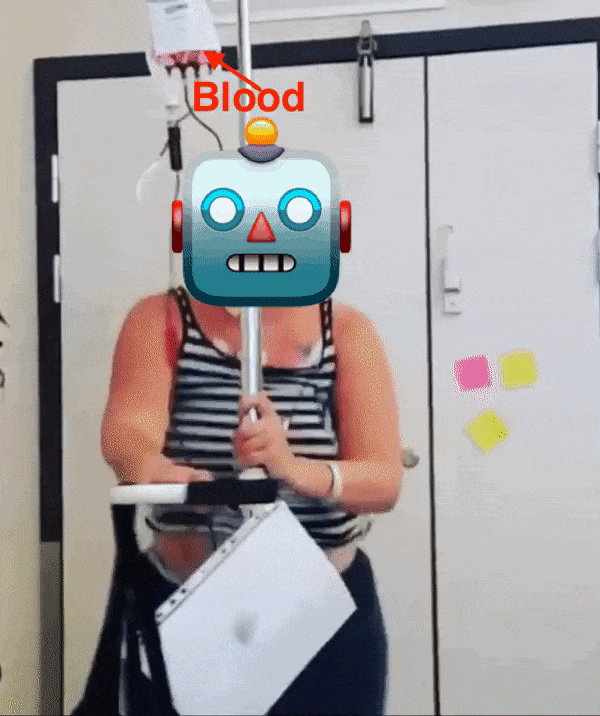 one's lungs would definitely add some glitter to a drama, don't you think? I have also used a drip stand as a skateboard, dance partner (they really do make for great dance partners), hanger, and have even displayed art on it. Most hospital corridors can be pretty glossy, so socks can easily be used to slide down long empty hospital corridors at night. So if you need any hacks on making hospital stays a little bit more fun feel free to ask, I have probably tried them all as I have been in and out of hospitals since I was a kid. I understand that not all patients have as much fun as I do, but wouldn’t it be nice to see that side of being a receiver too, you know, a human with wishes, desires, and interests other than receiving a heart? one's lungs would definitely add some glitter to a drama, don't you think? I have also used a drip stand as a skateboard, dance partner (they really do make for great dance partners), hanger, and have even displayed art on it. Most hospital corridors can be pretty glossy, so socks can easily be used to slide down long empty hospital corridors at night. So if you need any hacks on making hospital stays a little bit more fun feel free to ask, I have probably tried them all as I have been in and out of hospitals since I was a kid. I understand that not all patients have as much fun as I do, but wouldn’t it be nice to see that side of being a receiver too, you know, a human with wishes, desires, and interests other than receiving a heart? Side note: I have been told time and time again about how lucky I was and how smoothly my recovery went. When asked if I was grateful it all went so smoothly, my reply would be: are you grateful you were born with a functioning heart? Yes I actually said that to my doctor once... I also said no when asked if I wanted a heart transplant, as I asked if they had any other options... They said no and well we all know how that ended. That said I am in no way telling people who do not need a heart transplant to be grateful for not needing one, no matter who you are I am sure you have your own issues, and things you would rather not have wanted to experience but have had to. As I, too, would like to be able to take my life (a life that I am well aware of would have ended long ago if not for others' help) for granted, I would like to ask of you to do the same with yours. I am very much aware about the privilege I have for being able to get the care I need. However, it is not like I had the choice whether or not I wanted to get this gene in the first place: Oh wouldn't it be fun to experience a progressive heart disease... Said no one ever (I hope).
Surviving this took a lot of work from a lot of people and waaay more strength than I had. It is not a process I would wish on anyone. Therefore I prefer to see organ transplants as making the best out of a pretty s*** situation instead, a situation I would more than gladly have avoided if given other choices. However, had I not been given this experience, Starflakes would have been left on her own to write this article.
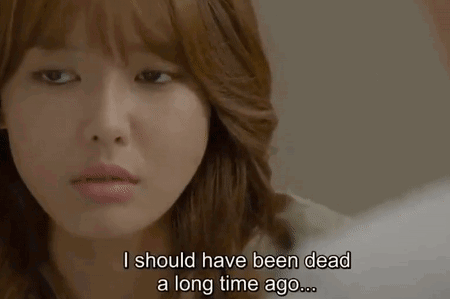 The Spring Day of My Life If not for science, good access to health care, and people reviving me I would not have passed the age of 12... But I do want to tell you and others: "Someone else" as mentioned above did not really need their heart anymore, and probably saved another 7 lives or so alongside mine. So by not burying/burning those precious organs and recycling them, the organs get to keep on doing what they do best. If not for the up to 8 lives, will someone think of the orphaned organs? Organs without bodies. |
Back to the things that are included in post heart-transplant treatment: First year included no less than 13 biopsies through the neck, where they took a little piece of my heart. In my case to the sound of Dusty Springfield’s Take Another Piece of My Heart. Yes, I would always play that song when they took it. Here is the actual list used: "Biopsi" heart themed songs + the staff's favorite music. 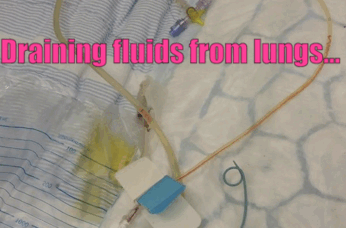 I have yet to see a character in Dramaland do any of these… Have you? I have yet to see a character in Dramaland do any of these… Have you?
|
Scars!A heart transplant does leave several scars (both physical and psychological). If we are lucky, in Dramaland we may get to see a small scar way down a person's chest and closer to the belly, I assume so that the person will be able to wear button up shirts without having to show a scar. However, and this may come as a shocker, a heart transplant is not a peephole surgery. They do actually open up the whole chest and that does leave a pretty cool scar. Mine is about 15cm long, and it is accompanied by two usb looking ports.   
|
Meds!
A Tale of Thousand Stars We take lots and lots of meds, the first year is brutal with the amount of meds. After the first year, the basic starter pack in Sweden (or at least me) for a heart transplant includes: about two types of immunosuppressants to be taken twice a day, anti cholesterol, blood thinners (very light ones), and meds that protect the stomach from all the other meds. If meds are present, they are often shown taking one pill and not the fistful of pills I am used to taking. 
Shiro's Meds | 
A Tale of Thousand Stars |
The amount of meds can easily collide with other meds so all meds prescription, traditional or what not, must be checked with the doctors. The most common NO, NO! is ibuprofen, I think it is for its effect on the stomach. |
Food restrictions! A Tale of Thousand Stars I have only seen healthy foods mentioned in Dramaland… Could be different approaches from different medical staff or could be the writer's way of interpreting the idea that transplantees have food restrictions? In my case, the restrictions are: Avoid soft ice cream, milkshakes, ice from machines, and unpasteurised, raw juice if it is not freshly made. There is a substance in Grapefruit and Pomello that affects the meds so they are off limits as well, unless I choose to eat the same amount of grapefruit everyday for the rest of my life, but to be honest, I am not a big fan of grapefruit so I'll pass. I must also always wash vegetables, and cut off the ends of tomatoes!
The ice from machines may not sound that bothersome... but that means no slushies during hot summer days... very few cocktails out, and always having to remember to order drinks with no ice. The amount of times I had to send a drink back... I am, however, allowed to drink alcohol in moderation unlike some transplantees in Dramaland.
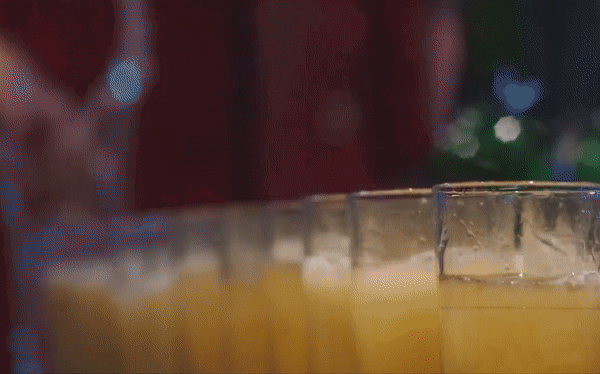
Crazy Love |
Yes, I am looking at you! You Are My Spring! 
And I am allowed to eat as much salty, spicy. greasy, sweet food as anyone else.  OK, I think that is it, no wait, this is not food but I won't be doing any hot scenes in a hot tub. Those are off limits, too! OK, I think that is it, no wait, this is not food but I won't be doing any hot scenes in a hot tub. Those are off limits, too!
 Made from picture found here Made from picture found here |
While looking for a sequence to make a gif in In The Spring Day of My Life I saw a scene where Lee Bom Yi (Choi Soo Young) a girl living with a recycled heart, is portrayed as feeling upset after being told she had gotten another life for free. I think I should stay clear of this drama even though Choi Soo Young rocks. But I do want to say something about getting a second chance at life or getting a life for free. I may not have had to pay a lot of money for this second, third, or whatever number this is but I would not really call this process free. Organ recipients may not live forever but there is no due date unlike what some dramas show us (once again, I am looking at you, You Are My Spring). As long as meds are taken, the checkups are done correctly and other risks such as: skin cancer, depression, infections, and other organ failure (nothing serious) are treated, there should be no difference between an otherwise healthy person's life expectancy and those of the organ recipient. |
|
 Screenwriter-Director Pairings: Kim Eun and Ahn Pan Seok
Screenwriter-Director Pairings: Kim Eun and Ahn Pan Seok





:max_bytes(150000):strip_icc()/stomach-transplant-and-multivisceral-transplants-4706536-v1-d4cc880367044ced830a8047195f46ab.jpg)
